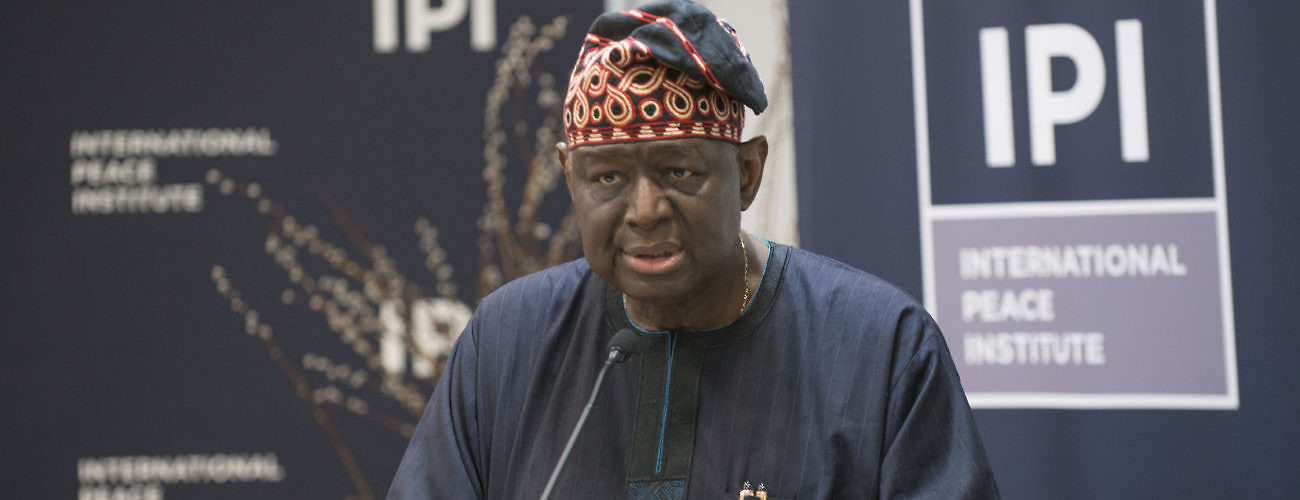“If we want effective humanitarian action, we must embrace the full participation and priorities of young people,” Babatunde Osotimehin, Executive Director of the United Nations Population Fund, told an IPI audience on September 19, 2016. “If we want a stable and sustainable future, we can no longer afford to leave young people behind.”
The comment set the tone for a panel discussion on Transforming Humanitarian Action with and for Young People that called for a revamping of the way that youth are thought of, even by well-meaning humanitarian actors.
“Young people are viewed as the victims, and sometimes as material for fundraising purposes,” said Ahmad Alhendawi, the UN Secretary-General’s Envoy on Youth. “But we neglect to see what contributions young people can make to the resilience of their communities.”
Fatoumata Ndiaye, Deputy Executive Director of the United Nations International Children’s Emergency Fund (UNICEF), acknowledged that her organization was quick to identify youths in need but slow in encouraging their involvement in crafting their own remedies.
“We are conscious that adolescents are present when conflict arise, and are often the first to respond,” she said. “What has not happened is that we have not taken them to the center of the discussion and taken advantage of their energy and innovation to find solutions.”
The conversation referenced the signing of the Compact for Young People in Humanitarian Action that was signed three months ago at the World Humanitarian Summit in Istanbul in a meeting chaired by Dr. Osotimehin.
Foni Joyce, a refugee from South Sudan now living in Kenya, attended the summit and remembered the reaction from her group. “It was clear that different refugees from all around the world spoke with one voice: they wanted to be consulted, engaged and involved in decision-making processes,” she said.
“We have this compact, with actions listed down,” she added, “but without involving the youth, it won’t be successful.”
Gary Conille, Under Secretary-General for Progammes and Operations for the International Federation of the Red Cross, said that the compact “requires us to think of young people as more than just an afterthought.”
He argued that “first and foremost, it requires us as partners to rethink our partnerships to ensure that we are integrating young people into our operations. We must rethink how we measure and define success to make sure we acknowledge the involvement and importance of young people in our operations. Engaging with youth requires language, tools, and instruments that organizations aren’t necessarily equipped with.”
Marián Sedlak, Liaison Officer for Human Rights and Peace at the International Federation of Medical Students’ Associations, concluded his comments with a plea that cited the current opening of the 71st General Assembly.
“I have only one recommendation,” he said. “Please use this General Assembly to talk with young people. This is the only way to move forward. We must be invited to concrete dialogue about how to proceed. We are young, innovative and willing to work. Don’t be afraid to approach partners of the compact.”
Els Debuf, IPI’s Senior Adviser on Humanitarian Affairs, moderated the meeting, and IPI President Terje Rød- Larsen, made opening remarks.
Related Coverage:
“IPI Panel: Humanitarian Action Must Have Youth Participation” (Office of the Secretary-General’s Envoy on Youth, September 20, 2016)








